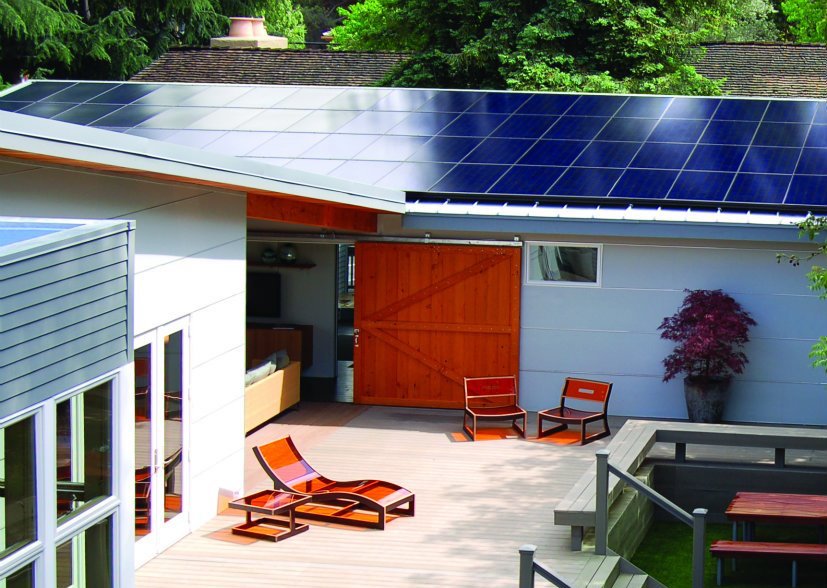Will Solar Panels Provide Electricity During a Power Cut?

Installing solar panels that will provide electricity during a power outage is an extra investment for homeowners. Photo: Freedom Solar, Inc. ©2019
With PG&E’s Public Safety Power Shutoffs affecting millions in Northern California this year, many residents are now searching for alternative methods for powering their homes. Some have turned to portable generators. Although they’re relatively inexpensive, generators consume gasoline, produce noise and fumes, and require regular maintenance to run reliably. For a more permanent and environmentally-friendly solution, some homeowners are investigating solar power. But not all solar systems will provide electricity in the event of a power outage, so it’s important to do your homework before making a decision.
Understanding Solar Panels and the Electrical Grid
Solar panels generate electricity in the form of direct current and transform it to alternating current (which is what homes use) through an inverter. In nearly all cases, a home’s solar panels are connected to the local electrical grid. When the solar panels produce electricity, any excess goes back to the grid and earns the homeowner credit with the utility company.
This energy crediting makes solar panels more economically attractive, but there’s a downside: the panels won’t generate power in the event of an outage. Solar panel inverters automatically shut off during a blackout because functioning solar panels could pose a danger to utility workers trying to repair the lines.
Solar Power Backup Batteries
If you want to use solar-generated electricity during a power outage, you need to install a solar battery backup system. This will transform a grid-tied solar energy system into a hybrid system. Energy that’s stored in backup batteries will provide electricity during an outage, and unlike generators, the electricity will be available almost instantly.
The system’s design will determine how much electricity is available. Depending on your budget, engineering factors or personal needs, the batteries may provide a whole home backup (which will meet all your home’s electrical requirements during an outage) or an essential load backup (which will provide enough electricity to cover the basics). Today, there’s a wide range of solar panels, inverters and backup batteries to choose from. A quality solar energy company can help you determine which products will best meet your budget and your family’s electrical needs.
If you already have a grid-tied solar energy system for your home, it may be easy to incorporate backup batteries, depending on the type of inverter you have. If your current inverter isn’t designed to work with batteries, you’ll need to replace the current inverter or get a separate inverter for the batteries. This scenario will invariably drive up the cost.
If you’re considering a hybrid solar energy system, you should be aware that it’s more expensive to install than a grid-tied system. Adding the equipment that’s necessary for battery power will add thousands of dollars to the project, which means it’ll take longer to recoup your investment. Additionally, like all batteries, these products don’t last forever, and homeowners will need to factor in the financial and environmental costs of battery replacement.
Solar Inverters as an Alternate Backup
If investing in a hybrid solar energy system seems too daunting, there are other options for harnessing solar power during a blackout. Certain solar panel inverters feature a secure power supply that can connect to an external socket. During an outage, these inverters can generate around 1,500 watts of electricity, which will be enough to power cellphone chargers, lamps and other small appliances. Costing only a fraction of a backup battery system, these specialized inverters can help you meet basic electrical needs. Keep in mind that they rely on solar energy to function, so they won’t provide any power when it’s dark.
Use Diamond Certified Resource to find top rated companies.
Local, Top Rated Diamond Certified Companies Related to Your Topic
Santa Clara County Solar Companies
Marin County Solar Companies
Solano County Solar Companies
San Mateo County Solar Companies
Alameda County Solar Companies
Related Articles
The Homeowner's Guide to Solar
Get Expert Advice From Owners of Top Rated Local Companies
Become a Diamond Certified Preferred Member (Always Free)